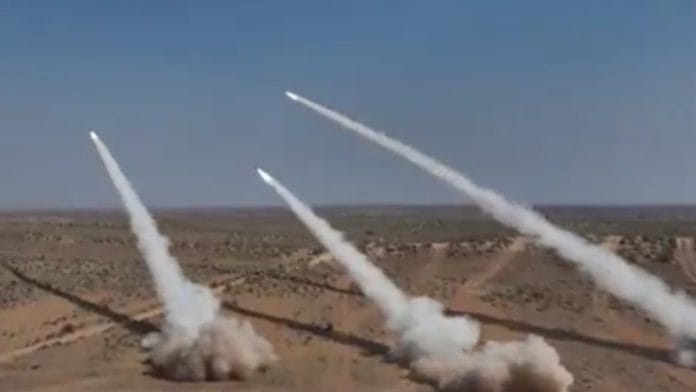The poignantly named Operation Sindoor was not long in coming. Launched within two weeks of the Pahalgam attack, 24 coordinated missile strikes on nine different and widely separated terrorist sites once again demonstrated the military’s ability to strike at ‘a time and place of one’s own choosing’. That the operation was launched and was successful in striking its designated targets in spite of the heightened state of alertness, only underscores Indian military’s superiority and professionalism.
The choice of targets and the methodology points to a carefully calibrated response seeking to only punish the perpetrators of terrorism. After two previous surgical strikes, one land based and the other by the Air Force, Pakistan might have been expecting something on similar lines. By adopting totally different tactics, the element of surprise was achieved.
This also exposed Pakistan’s inadequacies, striking a noteworthy blow on terror camps and resulting in significant casualties among the terrorists they housed. The choice of Bahawalpur and Muridke are also of particular importance – not just because they are the headquarters of the Jaish-e-Mohammed (JeM) and Lashkar-e-Taiba (LeT) respectively, but because these fall outside of Pakistan occupied Kashmir (PoK). This signals India’s intent that any location in Pakistan that harbours terrorists or their handlers is a legitimate target.
Also read:
Be prepared for Pakistan
It is too early to rejoice. Statements emanating from Pakistan, even before these strikes, indicated a hostile mood within the Pakistani military establishment, reeling under a backlash domestically as well as internationally. We should therefore be prepared for a tit-for-tat response. In this regard, Pakistan would be severely constrained in its choice of targets. Attacking civilian targets within Jammu & Kashmir would amount to hitting ‘their own people’.
Expanding the geographical space to other bordering states would put the onus of escalation squarely on their shoulders. Under the circumstances, strikes on military establishments or headquarters is a distinct possibility, raising the stakes exponentially. China has predictably expressed regret over the strikes, but at the same time, called for both sides to exercise restraint. This will no doubt act as a dampener and make Pakistan reconsider its response.
As a nation, we need to be prepared for any eventuality. Carrying out civil defence drills all across the country will sensitise the population to the possibility of danger, which can come raining down anywhere and at any time. These drills are not meant to alarm but to educate. Taking cover from enemy fire comes naturally to an Army man – it’s a basic battle drill and survival skill. This survival instinct has to be inculcated into civilians too. In Israel for example, when the air-raid siren is sounded, people automatically go to the nearest shelter, without any fuss or panic.
These drills, therefore, will make people more aware of how to react and what to do in any emergency – to go down to the basement of their high-rises, or the nearest underground metro station and so on. The timing of these drills, 7 May 2025, is also significant, in that it would have lulled Pakistan into a false sense of security. Pakistan must have thought that we would not strike until we were fully prepared. Surprise, surprise.
This military strike should not be seen in isolation. It comes as a follow up to various actions taken at the diplomatic and economic level to expose Pakistan and its status as a rogue state that has been actively sponsoring terrorism worldwide. These strikes are not the ‘end’, but only the ‘means to an end’ – part of a coordinated national game-plan. This is likely only the first salvo of a long-drawn-out battle.
General Manoj Mukund Naravane PVSM AVSM SM VSM is a retired Indian Army General who served as the 28th Chief of the Army Staff. Views are personal.
(Edited by Zoya Bhatti)







A capitalist India would have had enough money to strike every incoming Pak fighter jet with 100 missiles. But socialist India can afford to spare only two missiles per enemy jet.